Why does Policy in Practice go to political party conferences?
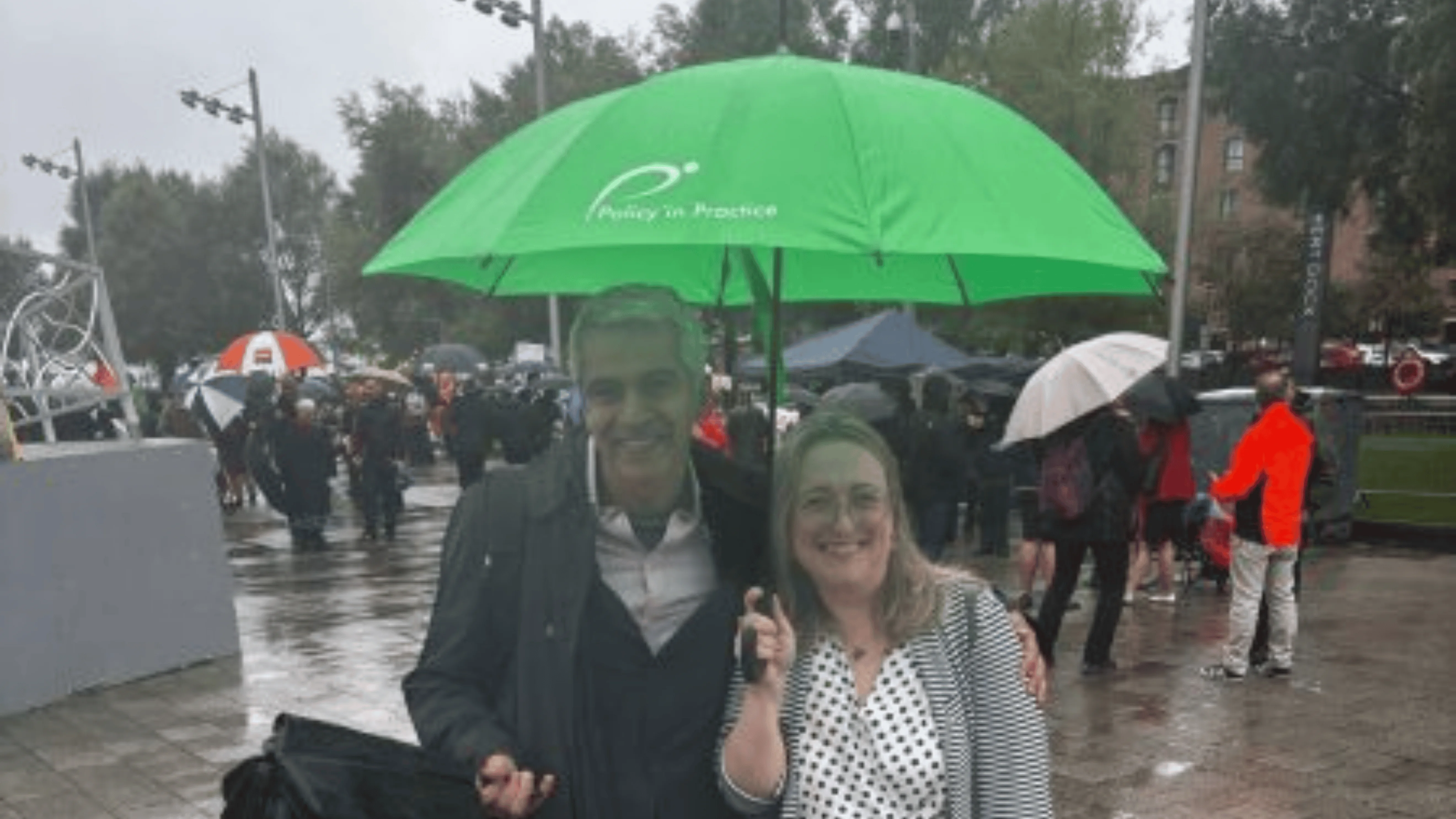
I posted a series of LinkedIn updates about my time at the recent Labour Party Conference and shared a video explaining why Policy in Practice goes to political party conferences.
In short, there are three main reasons:
- We don’t want to simply accept the system as it is when we know it can be better
- There are huge opportunities to make government work for all of us
- We can’t do it alone – we have to work together
Please add your comments about this blog or share your policy suggestions in the comments below.
We know that the system can be better
In many ways, trying to influence how government operates complicates our work. It’s much easier to make great software like Better Off and LIFT, tools that help thousands of people navigate the benefit system and make the best of our social security system.
But we know that the system itself can be better. Attending party conferences and meeting ministers in person smooths the path to influencing policy. You can open their eyes to possibilities, they see you as credible, and they understand your intentions when you call for big system changes that can mean changing policy and legislation.
We spoke directly with ministers about how they can make it easier for people to access support and reduce unclaimed benefits, something the government was looking for at the party conference, given the impact of cuts to Winter Fuel Payments.
We showed how these changes can also deliver on the government’s growth, employment and net zero missions, and advocated for the removal of policies that penalise people who really haven’t done anything wrong. Policies like the Benefit Cap which can limit support simply because rents have gone up in your area. What did the claimant do to drive up rents?
We were founded to have impact at scale
Because there isn’t a lot of money around we put forward changes that aren’t expensive and can make the public sector work better for everyone, from taxpayers to government. Changes that will give a better experience for you, as a user of government services.
Through our work we can show how relatively small changes can help frontline advisors from across local government and the private and voluntary sector to deliver better outcomes while saving time and money.
Thinking about the challenges facing people this winter, we showed how we are helping councils to identify people struggling to pay their energy bills and increase take up of Pension Credit. We were able to challenge the government not to stop at Pension Credit, and gave examples from our clients on the take up of Free School Meals, Healthy Start, Attendance Allowance and social tariffs.
One of the biggest opportunities we see is for government to use its data better. Working with benefits administration data from a quarter of local authorities means we can show others what the potential really is. We want to see public sector data shared across government and used for a much wider range of purposes, but government legislation restricts what is shared and what other departments can do with this data.
For the government to move with the urgency required, Universal Credit data and other datasets that can support government objectives should be more widely available to support local authorities with their poverty prevention work. Sharing your success stories can help ensure good practice is adopted more widely, and ideally at a national scale.
Connecting with people is powerful and fun
Going to political party conferences is an incredibly effective way to understand what other great policy work is being done by our partners, and to share the great work being done by our clients.
You may have seen me take selfies with lots of people, many of whom are old friends who I’ve been working with for a decade or more, and others who are new to policy that I met conference for the first time.
I particularly enjoyed meeting MPs and Councillors in local authorities that are clients of ours, joining the dots between our clients delivering practical change that helps people on the ground and using that knowledge to influence policy.
I’ve enjoyed engaging with a new government that is open to new approaches. There seems to be a real shift in seeing the potential of public sector data, partly through necessity as the government needs to do more with less.
Policy in Practice is in a really good position to show government what’s possible and talk about what’s holding the public sector back. We were also at the Liberal Democrats and Conservative political party conferences, they run councils that are our clients too and their job now is to hold the government to account.
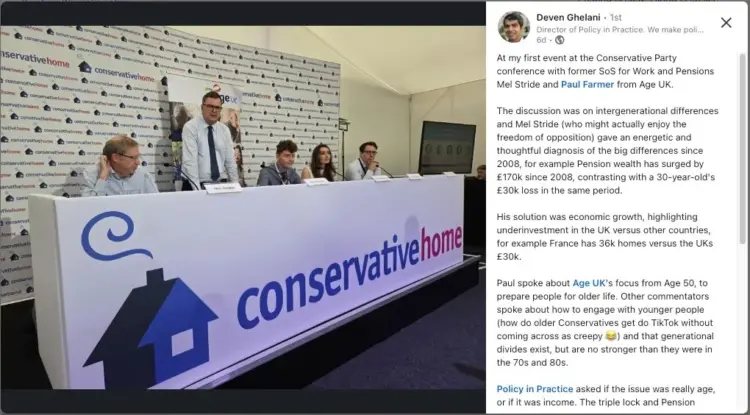
Deven Ghelani attended the Conservative party conference 2024
So these are the three main reasons – to improve the social security system, help the government make the most of the data it holds, and to connect with people across the country.
To highlight how we made these connections, take a look at the gallery of my time at the Labour Party Conference 2024, below.

1. My highlight was playing in the MPs versus Lobby football game at Villa Park. I played for the MPs and they won for the first time in twelve years!
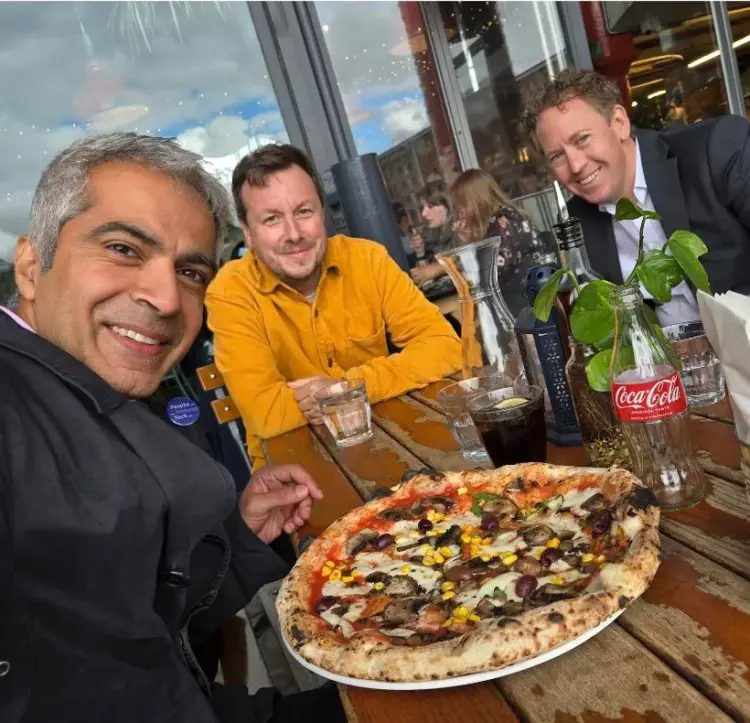
2. Great to catch up with old friends and bring people together. Steve and Gareth hadn’t met each other, but by the end of their pizza you’d think they were old friends

3. Nice picture of the three Mayors 😉 Seriously – we took this after I told Steve Rotherham and Andy Burnham how often I am mistaken for Sadiq Khan around Westminster. I don’t see it, do you?
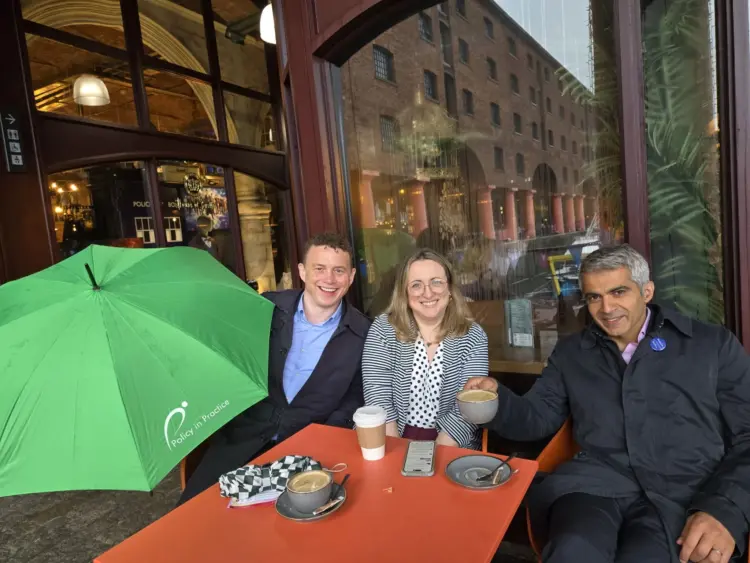
4. Time with the team, Fabian and Rachael joined me at the Labour Party conference in Liverpool where the umbrella came in handy
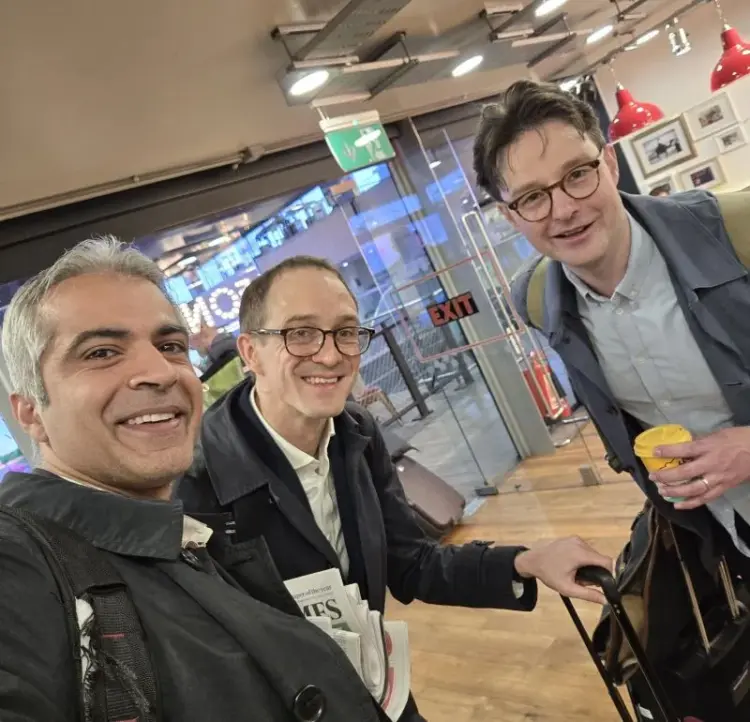
5. Most liked LI post of the conference!
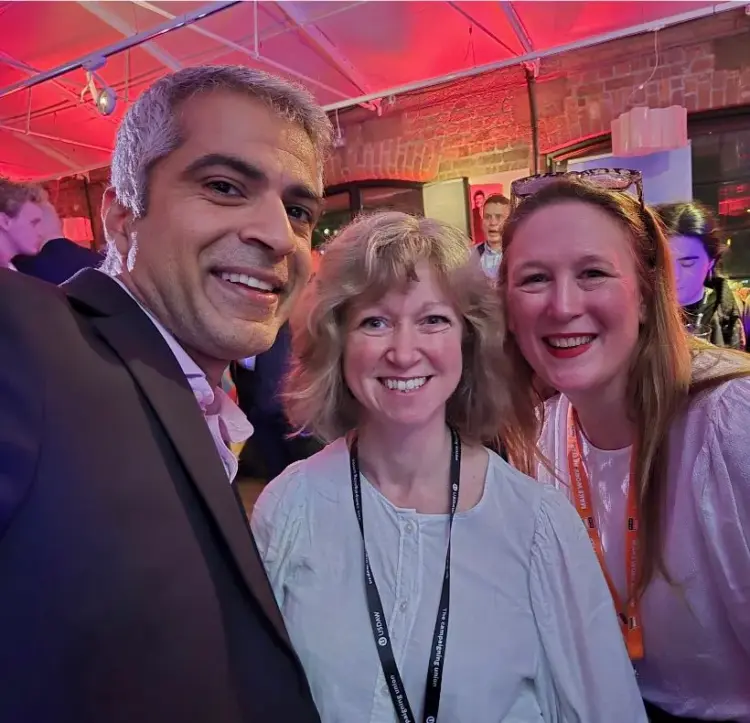
6. We met with Katie Schmucker of JRF who commissioned our very first report on Universal Credit in 2014, and Emily Darlington, MP Milton Keynes, who worked with us as a councillor
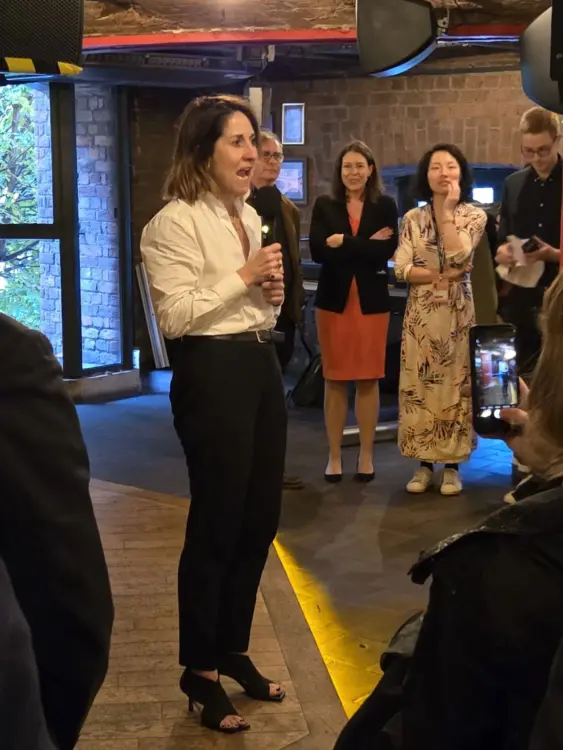
7. We met with Stephen Timms, Ali Mcgovern, Miatteh Fahnbulleh and a host of other ministers, backbenchers activists and campaigners at lots of fringe events, including this one with Liz Kendall



